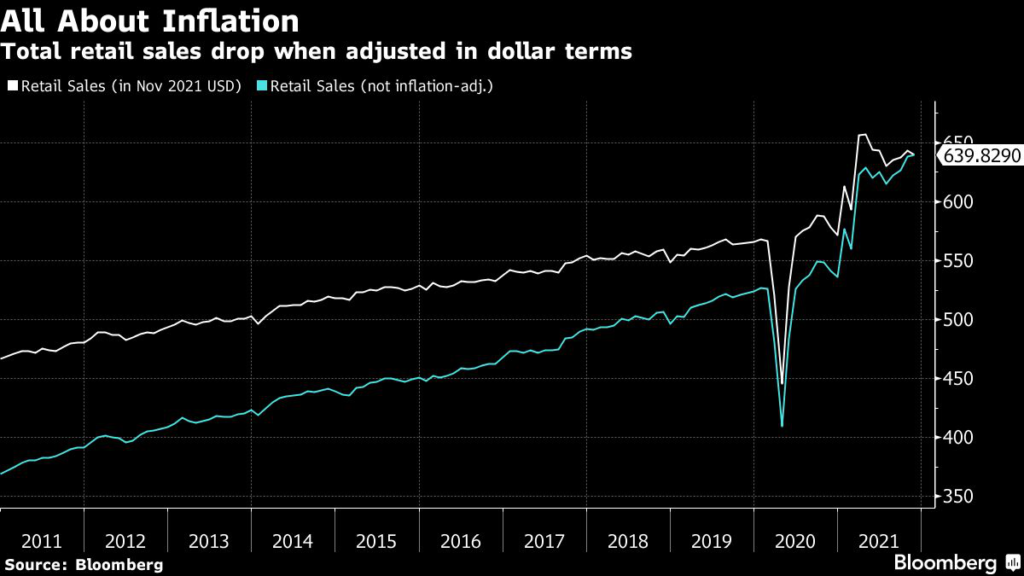(Bloomberg) — The American consumer has held strong since last year’s Covid-driven spending pause, as their purchases helped power the global economic recovery. But that momentum may be fading as the holiday season approaches.
But now, the effects of that stimulus are wearing off and the savings rate as a percentage of disposable household income has drifted down to 2019 levels. In other words, the tailwinds pushing the spending boom are easing and momentum is waning. The result is a new, relatively flatter year-to-date trend line.
November retail sales increased 0.3% from October, falling short of the expected 0.8% rise. Investors’ knee-jerk reaction was to turn defensive, with Nasdaq futures catching a bid and Treasury yields dipping lower. This year’s data carries extra significance as demand was largely expected to be pulled forward from December in anticipation of supply-chain snags and shipping delays. Economists are also wondering if some of that demand showed up in October as well.
The data also serves as an indication of how rising inflation and diminishing real wages are weighing on American consumer spending during a typically strong period for retailers powered by holiday gift-buying. The results aren’t encouraging. On an inflation-adjusted basis, taking into account CPI data, retail sales growth is actually negative.
In the pandemic era, the sustained ability to spend was a uniquely American story. In Europe and China, sales data is back to pre-pandemic levels. The momentum there faded a while ago. Europe used job-retention programs instead of stimulus checks, while China was largely affected by lockdown policies. Overnight Chinese data showed retail sales growth of 3.9% year-over-year, short of the estimated 4.7%, while industrial output rose 3.8% on an annual basis, slightly higher than the 3.7% estimate. Even exports are hitting records.
At the end of the day, the U.S. is a consumer-driven economy, and the nation’s fiscal stimulus efforts helped power activity at home as well was growth globally. But with inflation rising and fiscal support waning, it’s worth wondering the American consumer can continue to lead that charge. Or is this the first sign of a deceleration in global growth?
More stories like this are available on bloomberg.com
©2021 Bloomberg L.P.











